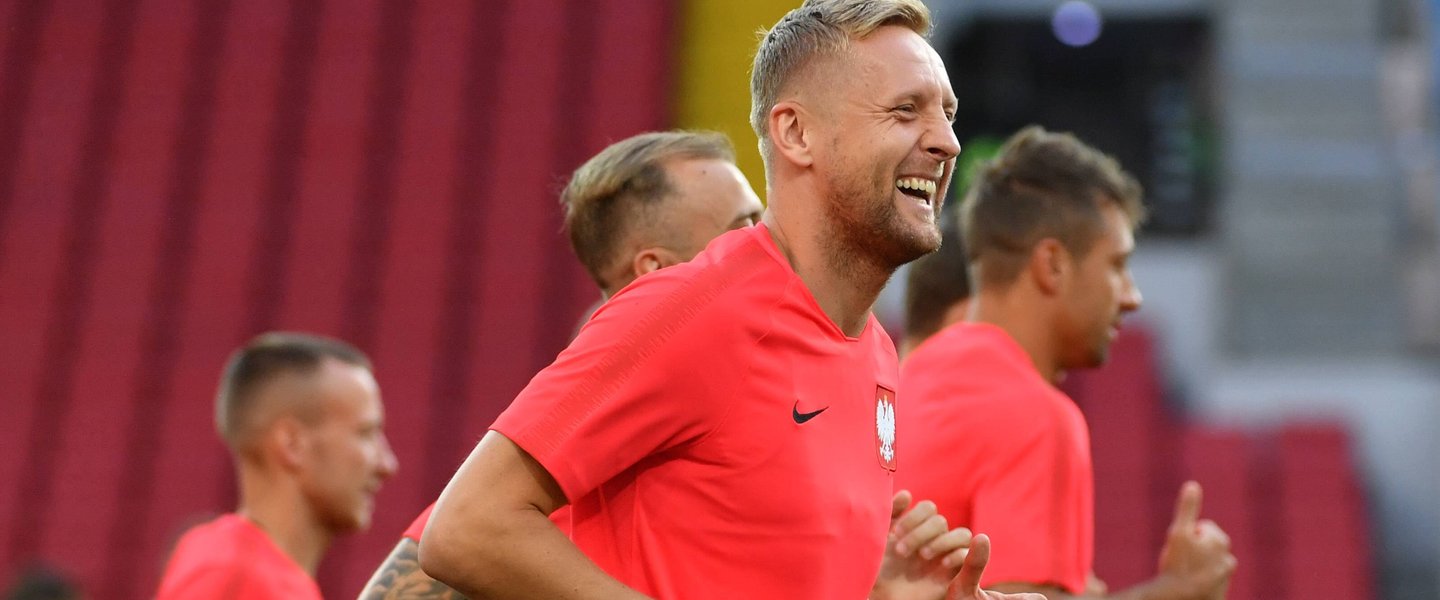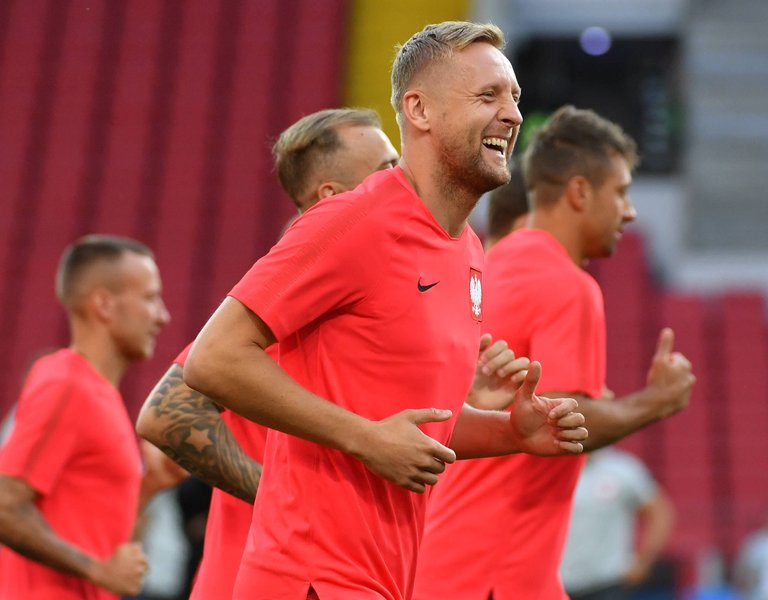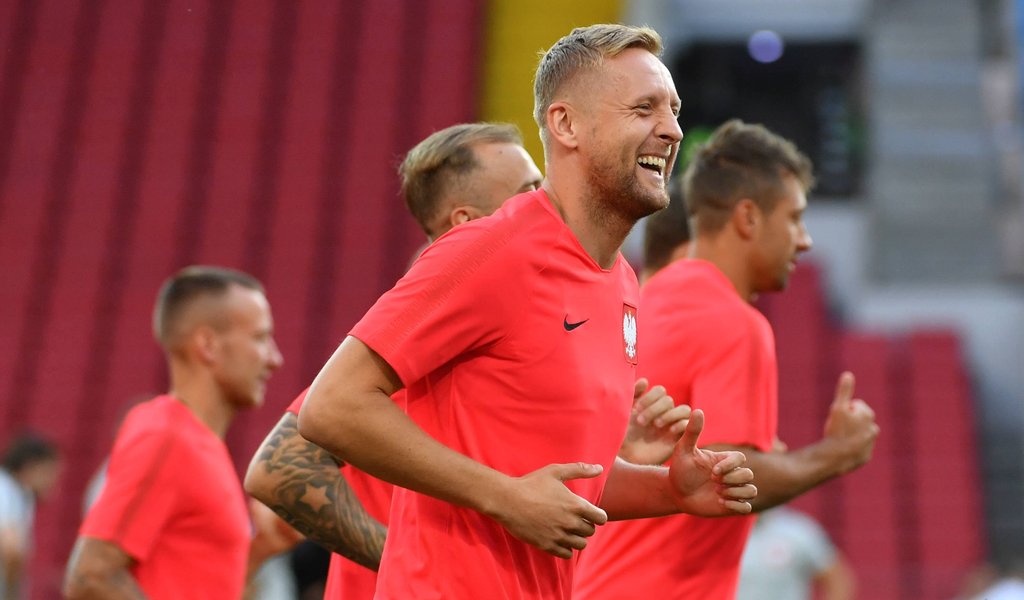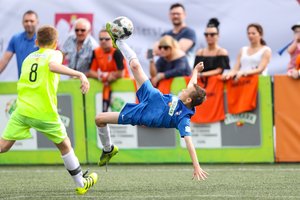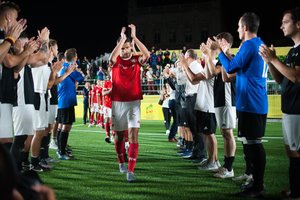Kamil Glik: From an alcoholic father to worship in Torino and Monaco
In Turin, they loved him for his character, dedication, fantastic defensive game and his effectiveness. Before he became the “Polish Rock” in France, Kamil Glik was both a miracle child and the wasted talent of Polish football.
Monaco have challenged the Qatari-backed Paris Saint-Germain, for whom playing in the league was just a chore in the breaks between attempting to conquer Europe. Last season the team from the French capital had already won the league in April, and the end of the Ligue 1 season were just practice games.
Now Monaco is top of the league, and the team from the Principality is beating records. Leonardo Jardim’s players have already scored 76 goals in the league, 26 more than second in the table PSG. This is a better result than Barcelona (the highest scoring team in Spain), Napoli (Italy), Liverpool and Manchester City in England or Bayern in Germany. Four of Monaco’s league goals were scored by Glik. But that's not why he’s considered one of the most important transfers to the French league.
In 2007, three teenage Poles arrived in Real Madrid – Szymon Matuszek, Krzysztof Król and Glik. The Polish media presented it as if the teens from the football school in Wodzisław Śląski had signed contracts with the first team and were sharing the dressing room with stars like Sergio Ramos, Raul and David Beckham.
The reality was slightly less spectacular as the trio from Wodzisław were playing in the third Real team. Glik didn’t come across as the most capable of three Poles. Krzysztof Król was rated much higher, and he was even moved to Castilla to play for the reserves.
Today, Król, who gained notoriety for needing to appear in the media, after adventures in low‑ranking Polish clubs, in Moldova and the second Greek league, does not have a contract and his career is effectively over. Matuszek’s career sees him oscillating between the Polish Ekstraklasa and he next rung down (he is currently at Górnik Zabrze), while Glik is battling for the French championship and the Champions League, and France Football and L'Equipe journalists melt into superlatives about him.
Ministry of Silly Walks
The transfer to Spain was down to Janusz Pontus. The former league player, who won the Polish championship with Górnik Zabrze in 1985 and the Polish Cup with Lech Poznań in 1982, took up training youth after his career and created a football school in Wodzisław. He also had business interests in the food sector that got him into trouble and ended with him being sentenced in 2011 for not paying for a container of garlic and tomatoes.
He organised the school in Wodzisław in line with his own vision. As he said in 2010, he travelled to the Czech Republic, where they have a French-style training system, as well as to Germany, to make his school completely different to how footballers were trained in Poland at the time.
He wanted his pupils to stand out in terms of fitness. That's why he organised gymnastics classes in Radlin, where all of Poland’s best gymnasts come from, including the Olympic medalist Leszek Blanik. He didn’t let his boys play for the junior national teams so that they wouldn’t suffer burn-out. He preferred that the time they would have to spend on squad meetings and matches at regional or national level was allocated for more training, particularly general development training.
“There was no point in them going away for two weeks and playing for points. A 16-year-old football player has to devote every minute to training. Techniques, tactics, coordination. It was difficult to explain to the kids that they wouldn’t be going abroad, wouldn’t be staying in a nice hotel and wouldn’t be putting on the national shirt, because they had to practice in what I called the ministry of silly walks. We had several serious conversations with the boys themselves and with their parents. Sometimes, the boys would burst into tears,” recalled Pontus.
Unlucky Glik
Glik remembers that he and his colleagues had doubts about the methods used in Wodzisław. Kamil arrived at Pontus’ academy from Jastrzębie-Zdrój. Pontus spotted the 12-year-old during a friendly tournament in the Czech Republic. Glik was playing... in goal. MOSIR Jastrzębie-Zdrój’s full-time goalkeeper had just been injured. There was no one to replace him, and Kamil was the tallest among the kids who were training there. He put in a good effort but Pontus had no intention of him being a goalkeeper.
The children from Wodzisław did gymnastics and skated rather than play in national teams and compete in leagues. Most people at best looked on the former Górnik Zabrze player’s experiment with scepticism. When they reached the right age, Pontus tried to place his most talented prospects with professional Polish clubs, but no-one was interested.
Glik was invited for trials at Cracovia and Lech Poznań. Neither the manager at the time and now Polish FA sports director Stefan Majewski or the Lech manager Czesław Michniewicz wanted him. Glik didn’t get to sign a contract and was sent home. Pontus made an exception for Glik and allowed him to go to the training camp of the German national youth team. Like many Silesians, Glik also has a German passport, his being with the name Gluck.
“I didn’t pass the tests, but I knew that I was a good player. Perhaps there was a moment of doubt, but it passed. We were infected with Pontus' energy and zeal. We knew that our time would come,” says Glik.
After failures with Polish clubs, Pontus decided to send his most talented prospects abroad. We managed to make an agreement with the fourth league Spanish league UD Horadada. Along with Glik and Matuszek, the son of the Wodzisław school’s founder Marcin Pontus, Marcel Lička (the son of the coach Verner Lička) and Kamil Wilczek also made the journey. The latter plays today for the Danish team Broendby Copenhagen and has received a call-up to play for Poland from Adam Nawałka. Apart from Lička, who was much older and already had several games in the Ekstraklasa under his belt, the boys were 16-17 years old.
“The level? In terms of sport it was like our first league, in terms of organisation it was close to the Ekstraklasa. At the beginning, I played for the juniors, but after six months I was already in a first team. That’s when I heard that scouts from Real Madrid were watching me. After a month of rumours, I was invited for tests. It was like a fairy tale. I knew that I was going to the third team, but it was still Real,” Glik recalled. “I dreamed about playing in the first team, but I went to Madrid with the attitude of making the most of my stay, to learn as much as a I could and go back to Poland.”
Pontus believed that his players needed to play with adults, that they couldn’t waste time in junior teams. In 2008, when it was clear the Poles wouldn’t break into the Real team, the English club Stoke came calling for Glik, not for the senior team, but for further training at their academy. Glik turned the offer down, and Pontus redoubled his efforts to find him a club in Poland.
Contact was made with Mirosław Trzeciak, the sporting director at Legia who is best known among fans for not buying Robert Lewandowski from Znicz Pruszków. Trzeciak is said to have called the president of Znicz to boast about signing 25-year-old Spaniard Mikel Arruabarrena. Lewandowski ended up going to Lech Poznań. Pontus heard that Legia wanted Glik, but only for the reserves. Neither were interested in the offer.
It looked like Glik could end up without a club but Piast Gliwice signed him at the last minute. After playing 13 minutes against Arka Gdynia reserves, then in the Polish Cup against Sokol Aleksandrów Łódzki, he joined the first team. “A few weeks later, Lech called me and asked if Kamil was only loaned to Piast, or whether it was a full transfer, because they really wanted him,” Pontus recalled.
“Dad, please come sober”
The 20-year-old was one of the revelations of the season. Although Piast were relegated, it was clear that Glik would not have to play in the lower league. He had already played in the national team, and his name was already linked with leading Polish clubs. Nobody in Warsaw or in Poznan would have thought about him playing in the reserves.
After Kamil's debut in the league, at the age of 42, his father Jacek died of a heart attack. Glik does not come from a good home where the children were fussed over. The estate in Gliwice where he grew up is not particularly friendly. It was a place of moonshine vodka and petty criminals. Glik’s father was a miner with serious alcohol problems. Glik talked very honestly about his childhood in an authorised biography written by Michał Zichlarz Character Counts. Later, he didn’t hold back in the album published before Euro 2016 In The Squad.
“My father drank a lot; he argued with my mother. Me and my brother had to see it all, sometimes I reacted, although at 15-16 it was difficult. Mum sometimes called the police saying that Dad was aggressive and drunk. They would come and give him a warning. On my estate that was normal, a standard situation for the police. I was also used to it. The next day, as if nothing had happened, Dad took us out to play football. That’s what it was normally like when he came back from Germany for a week, a week and a half. There were a lot of things that I didn’t understand. I knew he had problems, he tried to get better but it only worked for a while. After a few months things would go back to normal and his alcohol problems got worse. The culmination came when he went to Germany. It wasn’t easy for him. He lived alone. If you are not mentally strong at times like that, you turn to alcohol. He wasn’t. He tried to get better, but it only lasted a while. He was working in a mine in the Czech Republic, but he lacked will. Three or four months passed and he went back to the drink... I said: ‘Dad, come sober today.’ It worked for a few days. We persuaded him to go for various types of treatment. Sometimes he started but after a week he went back to drinking. We did as much as we could,” Glik said before European championship.
After Piast were relegated, Glik was thrown into the deep end when he moved to Serie A. In Palermo he didn’t play at all and he agreed to go on loan to Bari. It was only when he moved to Torino that he became a star of the Italian league.
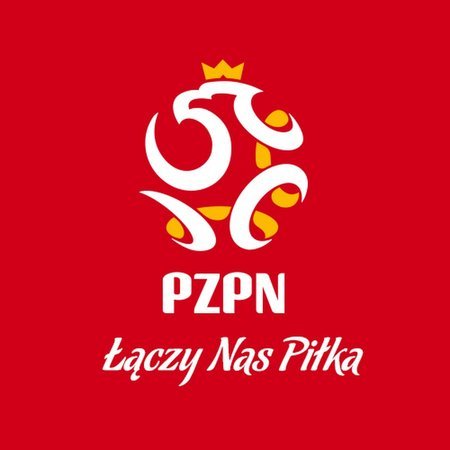 Bust-up with Zibi
Bust-up with Zibi
In Turin, they loved him for his character, dedication, fantastic defensive play and effectiveness in the opposition penalty area. Glik quickly became captain of Torino. Songs were created in his honour, and not only stadium chants. Italian rapper Willie Peyote wrote a song called Glik, praising the Polish defender.
At the beginning of his national squad career, Nawałka didn’t see a place for him in the team. It is an open secret that during Waldemar Fornalik’s last match as national team coach, at Wembley, there was a bust-up between Glik and Polish FA boss Zbigniew Boniek. In the dressing room, Boniek let the players have it, although it was neither the time nor the place. The players themselves knew that they had failed, and they also knew that failure meant the departure of Fornalik and his staff.
Even so, Boniek said a few words too many, criticising Glik without mentioning him by name. He stood up, approached Boniek and asked if he meant him when he said a "Serie A defender who can’t play for 90 minutes." The other players calmed the situation down, but oddly enough Glik wasn’t included in the first call-up of the new coach. Today, it is difficult to imagine the Polish team without Glik, and he says he doesn’t remember much about the incident.
Recently, the Monaco defender admitted that he has been playing for a long time with a broken rear cruciate ligament in the knee. Despite this, he doesn’t want to go into surgery and hopes to do it after his career. For now, he will continue taking pain-killing injections. In Polish football – and perhaps in the whole of Europe – there is nobody harder than Glik.
The Monaco central defender is unlucky that he lives in the times of Lewandowski, Arkadiusz Milik and Jakub Błaszczykowski, at a time when Polish football is no longer a depressing story but rather one of success. In the mid-90s or even at the beginning of this century, a defender who also attacks the opposition goal, a man with such character, would certainly be the biggest star of Polish football. Today, spoiled by the goals of Lewandowski, we look at Glik a little differently. It's an old footballing truth: no defender will ever be as popular and appreciated as a forward. But despite this, it is worth appreciating Glik for the way he plays and for his character.
Author: Piotr Żelazny
Source: “Rzeczpospolita”

22.06.2018
